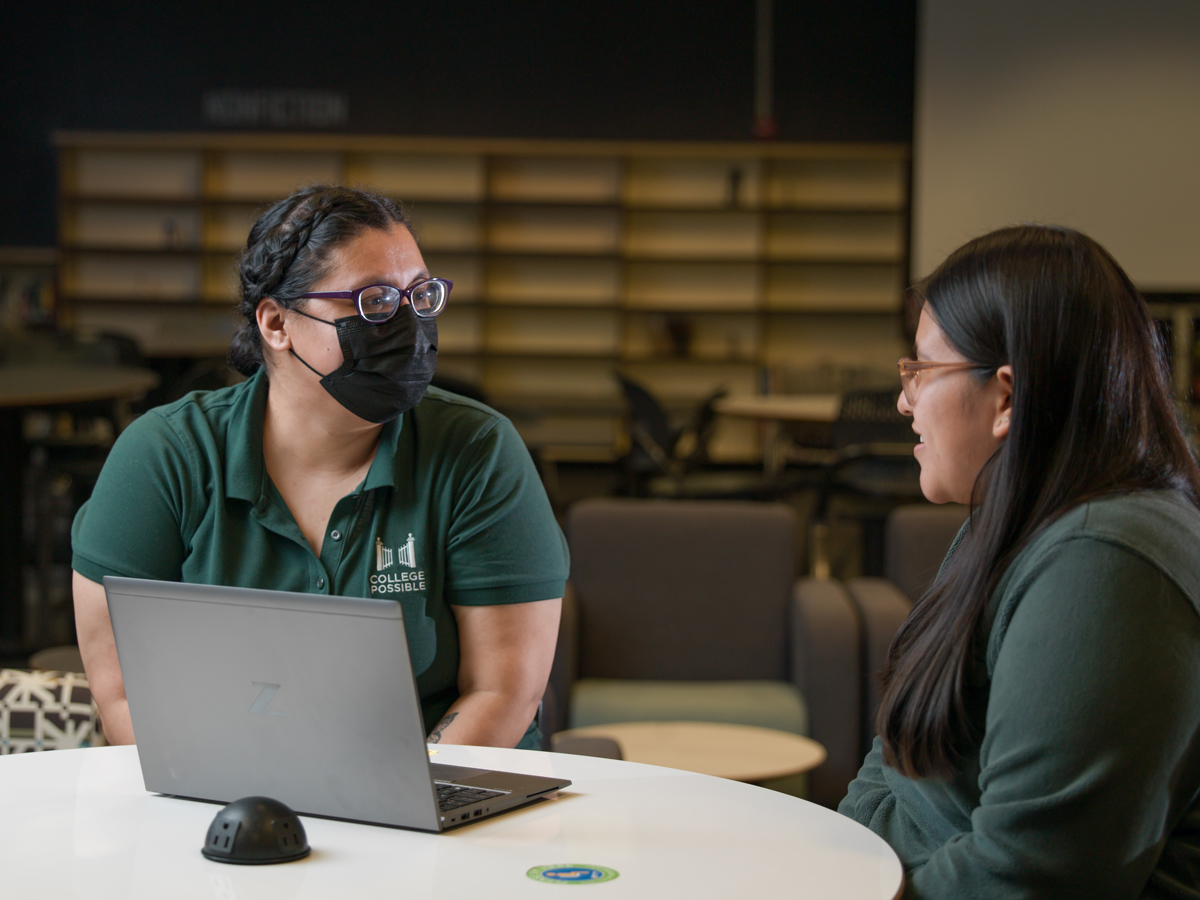Student mental health and support are critical components of the College Possible Catalyze coaching curriculum. Coaches receive training to ensure they are knowledgeable about counseling and health services available on campus, and to be aware of the indicators of when students should be referred to the counseling center.
In August 2019, Morgan State University and College Possible Catalyze partnered to support students from low-income backgrounds from their first year to graduation. We spoke to two success coaches at Morgan State, Domoniq Stewart and Miles Armstrong, to learn how the College Possible Catalyze near-peer coaching model has enabled them to navigate conversations about mental health concerns with the students they serve.
Q: What inspired you to become a College Possible Catalyze success coach and AmeriCorps member?
Domoniq: My first two years at Morgan State, I didn’t typically reach out for help or support and instead tried to figure everything out for myself. My position with College Possible Catalyze allows me to be the person I was looking for throughout my first two years on campus and help guide students in the right direction.
Miles: Throughout my entire time at Morgan State, people poured into me; they offered resources and support to help me figure out what I wanted to do and accomplish in my life. I felt like I owed it to those who supported me during my time at Morgan State and helped me be successful. Serving with College Possible Catalyze has given me the opportunity to give back to Morgan State and grow my skills as a coach.
Q: How do you approach mental health as a topic with students? How do you make your students comfortable enough to open up about mental health?
Domoniq: We do our best to make our office a safe and inclusive space for students, communicate our own personal experiences and struggles to establish trust, and give them the chance to open up and allow us to support them in whatever they may be going through.
Miles: Within our first few meetings with students, we always cover where the Mental Health Center is on campus and ensure that what they choose to share with us will remain confidential, unless it’s something that needs to be reported.
Q: How has your training with College Possible Catalyze prepared you to identify and help students at risk?
Domoniq: My College Possible Catalyze training has helped me refine certain skills that I already had. They’ve challenged me to approach situations differently, be more empathetic and compassionate towards student concerns, and meet students where they’re at in order to better serve them. College Possible Catalyze has given me a good structure to fall back on because if I have any doubt or questions, I know I can always go to the Catalyze team or refer to College Possible’s [online learning management system] and training resources for help.
Miles: The professional learning community meetings that we have every Friday are always a good test of how we’re doing as coaches. We’re able to talk to College Possible Catalyze coaches from other campuses, share some of the strategies that we use, learn from their feedback and the ways they may approach a certain situation. Having this community to bounce ideas off of really gives us the opportunity to communicate our personal experiences and figure out different ways we can support and identify students with mental health concerns. College Possible has given us the ability to empathize with students yet still develop an objective strategy to help them.
Q: How have faculty and staff members at Morgan State University and College Possible supported you in your role as a coach?
Domoniq: If we have any questions or concerns, we can always ask our campus program lead, Mr. Thaddeus Price, or we can go directly to College Possible for help. Everyone at College Possible Catalyze and our campus program lead genuinely care which pushes us to work harder knowing that we have that strong backbone behind us.
Miles: Mr. Price goes above and beyond to make sure we have everything that we need to be successful as coaches. We meet with him every Wednesday to discuss what’s been going on with students and address any concerns or questions we may have. He’s encouraged us to be proactive and openly communicate with each other to accomplish our goals. The team at College Possible Catalyze has empowered us to structure the coaching program in a way that we believe will be most successful and beneficial at Morgan State.
Q: What do you hope to pursue and accomplish following your year of service?
Domoniq: I’m hoping to get my masters in social work, that way I can help families from low-income backgrounds all across the board. When I found College Possible Catalyze, I knew that it was going to be a great experience and would prepare me to help students and refine my skills in order to pursue my career goals.
Miles: At this time next year, I am hoping to have finished up my first semester of a PhD program in social history and working to connect and find the legislative policies and solutions for the socioeconomic situation in America right now. I plan to continue to do my part to help people who are less fortunate than I am and may not have the chance to be part of a program like Catalyze. Being a College Possible Catalyze coach gives [recent graduates] the ability to connect with their community and create opportunities for other people along the way.



